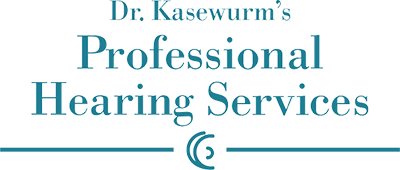
The first thing to do, when you begin to recognize that you have hearing loss, is to eliminate further damage. There are, in fact, some straightforward measures you can take to safeguard your ears and minimize further hearing loss.
Step 1: Keep Your Ears Clean
Did you clean behind your ears? It’s one of those initial hygiene lessons you learn (or should have learned), right? When it comes to hearing health, however, we’re not worried about the areas behind your ears, but rather your inner ears.
There are numerous ways that keeping your ears free from wax can help your hearing:
- Your brain and ability to interpret sound will ultimately be affected by untreated hearing loss.
- When wax accumulation becomes substantial, it can stop sound from reaching your inner ear. As a result, your ability to hear becomes diminished.
- If you use a hearing aid, earwax buildup can interfere with its function as well. You might end up feeling like your hearing is going downhill because of this.
- Your ability to hear can also be impeded if you get a serious ear infection which can also be caused by unclean ears. Your hearing will go back to normal after the ear infection clears.
If you observe earwax buildup, it’s absolutely not recommended that you dig around in there with a cotton swab. Additional damage can be done by cotton swabs and they will frequently worsen your ability to hear. Over the counter ear drops are a better decision.
Step 2: Avoid Loud Noises
This one is so instinctive it almost shouldn’t be listed. The issue is that most individuals are hard-pressed to define what a “loud noise” actually is. As an example, freeway driving can be loud enough to damage your hearing over an extended period of time. Your lawnmower motor can be rather taxing on your ears, too. Clearly, it’s more than rock concerts or high volume speakers that cause hearing damage.
Some practical ways to escape harmful noises include:
- Wearing hearing protection when noisy environments are unavoidable. Does your job put you on the floor of a noisy manufacturing plant? Do you really want to go to that rock concert? That’s great. Just use the correct ear protection. Contemporary earplugs and earmuffs provide ample protection.
- When you’re watching videos or listening to music keep the volume on your headphones at a manageable volume. Most phones feature built-in warnings when you’re nearing a dangerous threshold.
- Making use of an app on your phone to warn you when decibel levels reach unsafe levels.
Damage to the ears from noise doesn’t develop abruptly, it builds up gradually. So, even if your hearing “feels” fine after a loud event, it may not be. You can only get a clean bill of health for your ears by a hearing specialist.
Step #3: Address Any Hearing Impairment You Might Have
Generally speaking, hearing loss is cumulative. So, the sooner you recognize the damage, the better you’ll be capable of preventing further damage. That’s why treatment is extremely important when it comes to limiting hearing loss. Your hearing will get the greatest benefit if you find and follow through on effective treatment.
Here’s how treatments work:
- We can give personalized guidance and advice to help you avoid added damage to your hearing.
- Hearing aids can stop some, but not all, damage. Hearing aids will, for example, allow you to listen to the TV or music at a lower volume, avoiding damage. Hearing aids will counter further deterioration of your hearing by preventing this damage.
- Hearing aids prevent the brain strain and social isolation that exacerbate hearing loss-related health problems.
Limiting Hearing Impairment Will Benefit You in The Future
While it’s true that there’s no cure for hearing loss, getting treatment for your hearing loss will help stop further damage. In many cases, hearing aids are one of the primary ways to achieve that. The correct treatment will help you maintain your present level of hearing and stop it from getting worse.
Your giving yourself the best chance for healthy hearing into the future by using ear protection, getting the appropriate treatment, and exercising good hearing hygiene.

